Related Research Articles

Joan Mary Waller Greenwood was an English actress. Her husky voice, coupled with her slow, precise elocution, was her trademark. She played Sibella in the 1949 film Kind Hearts and Coronets, and also appeared in The Man in the White Suit (1951), Young Wives' Tale (1951), The Importance of Being Earnest (1952), Stage Struck (1958), Tom Jones (1963) and Little Dorrit (1987).
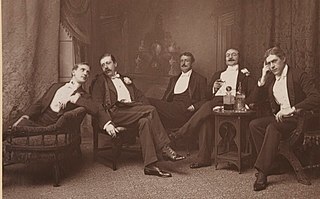
Lady Windermere's Fan, A Play About a Good Woman is a four-act comedy by Oscar Wilde, first performed on Saturday, 20 February 1892, at the St James's Theatre in London.
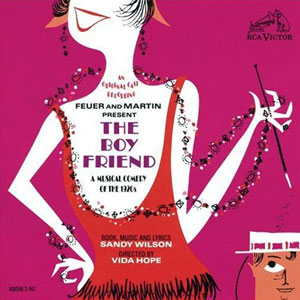
The Boy Friend is a musical by Sandy Wilson. Its original 1954 London production ran for 2,078 performances, briefly making it the third-longest running musical in West End or Broadway history until they were all surpassed by Salad Days. The Boy Friend marked Julie Andrews' American stage debut.
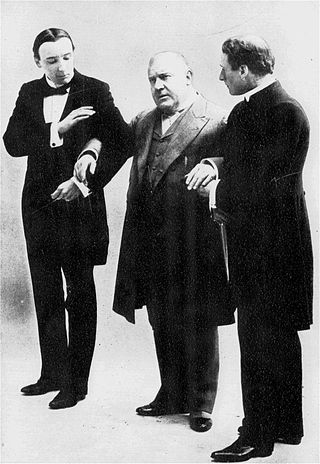
The Admirable Crichton is a comic stage play written in 1902 by J. M. Barrie.

An Ideal Husband is a four-act play by Oscar Wilde that revolves around blackmail and political corruption, and touches on the themes of public and private honour. It was first produced at the Haymarket Theatre, London in 1895 and ran for 124 performances. It has been revived in many theatre productions and adapted for the cinema, radio and television.

Salome is a one-act tragedy by Oscar Wilde. The original 1891 version of the play was in French; an English translation was published three years later. The play depicts the attempted seduction of Jokanaan by Salome, step-daughter of Herod Antipas; her dance of the seven veils; the execution of Jokanaan at Salome's instigation; and her death on Herod's orders.

Dinah Sheridan was an English actress with a career spanning seven decades. She was best known for the films Genevieve (1953) and The Railway Children (1970); the long-running BBC comedy series Don't Wait Up (1983–1990); and for her distinguished theatre career in London's West End.

Horace Annesley Vachell was a prolific English writer of novels, plays, short stories, essays and autobiographical works.

The Unguarded Hour is a 1936 American drama film directed by Sam Wood and starring Loretta Young, Franchot Tone and Roland Young. In England, a prominent young prosecutor in a murder trial is unaware that his wife is involved.

Lord Camber's Ladies (1932) is a British drama film directed by Benn W. Levy, produced by Alfred Hitchcock, and starring Gerald du Maurier, Gertrude Lawrence, Benita Hume, and Nigel Bruce.

Oh, Lady! Lady!! is a musical with music by Jerome Kern, a book by Guy Bolton and P. G. Wodehouse and lyrics by Wodehouse. It was written for the Princess Theatre on Broadway, where it played in 1918 and ran for 219 performances. The story concerns an engaged young man, Bill, whose ex-fiancée arrives unexpectedly on his wedding day. Bill works to convince his old flame that he was not worthy to marry her, but his clumsy efforts do not make him look good to his new fiancée, whose mother already dislikes Bill. A couple of crooks cause further complications.
Walter Alabaster West was an English film director and producer. He was a partner in the film production company Broadwest Films.
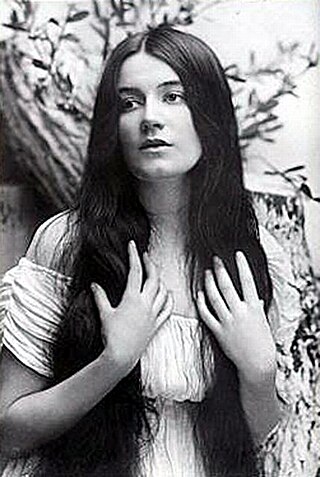
Violet Hopson was an actress and producer who achieved fame on the British stage and in British silent films. She was born Elma Kate Victoria Karkeek in Port Augusta, South Australia on 16 December 1887. Violet Hopson was her stage name, while in childhood she was known as Kate or Kitty to her family.
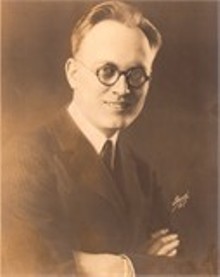
Harlan Thompson was an American theatre director, screenwriter, lyricist, film director, and film and television producer. He wrote the Broadway hit Little Jessie James (1923–24), and several other Broadway musicals. He moved to Hollywood, where he was in turn a writer, director and producer.
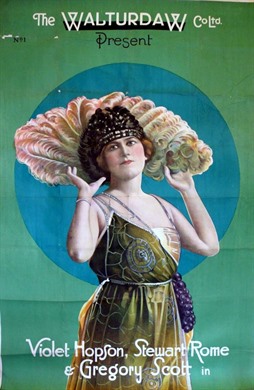
The Case of Lady Camber is a 1920 British silent mystery film directed by Walter West and starring Violet Hopson, Stewart Rome and Gregory Scott. Lord Camber comes under suspicion of murdering his wife, an ex-chorus girl. It was adapted from a 1915 play of the same title by Horace Annesley Vachell. It was made at Walthamstow Studios.

The Story of Shirley Yorke is a 1948 British drama film directed by Maclean Rogers and starring Derek Farr, Dinah Sheridan and Margaretta Scott. The film was based on the play The Case of Lady Camber by Horace Annesley Vachell. It was made at the Nettlefold Studios in Walton-on-Thames. Art direction was by Charles Gilbert.
The Case of Lady Camber may refer to:

There's Always Juliet is a 1931 comedy play by the British writer John Van Druten about an American architect who falls in love with an Englishwoman.
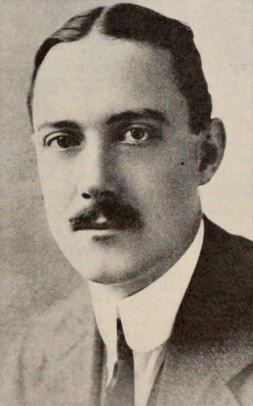
John Goldsworthy (1884–1958) was a British-born stage and film actor. After emigrating to the United States he was active on Broadway appearing in a variety of plays, as well as several musicals. During the silent era he appeared in supporting roles in American films. Later in the 1940s he returned to the cinema, now playing mainly small, uncredited parts. His final film was MGM's The Prisoner of Zenda (1952).

The Voice from the Minaret is a play by the British writer Robert Hichens. It premiered at the Globe Theatre in London's West End in 1919, with a cast including Marie Lohr, Arthur Wontner, Henry Vibart, Norman McKinnel, George Hayes and Vane Featherston. In 1922 it was staged on Broadway at the Hudson Theatre with Lohr and Herbert Marshall heading the cast, and Edmund Gwenn receiving the best reviews.
References
- ↑ Low p. 152
- ↑ Bordman p. 60
- ↑ Goble, Alan (8 September 2011). The Complete Index to Literary Sources in Film. Walter de Gruyter. ISBN 9783110951943 – via Google Books.